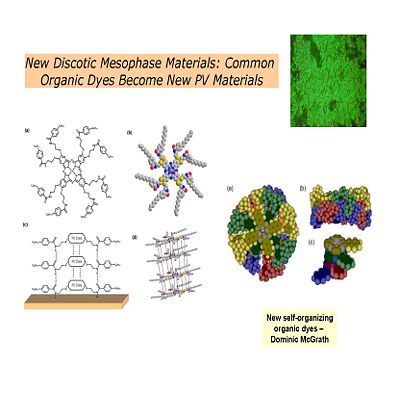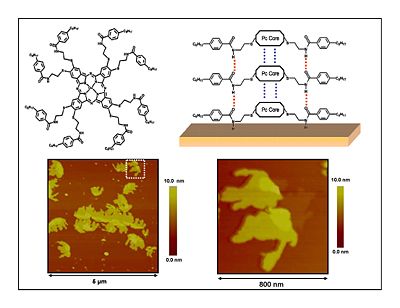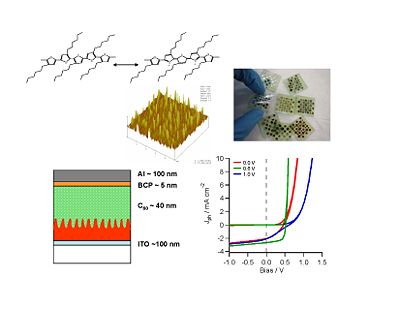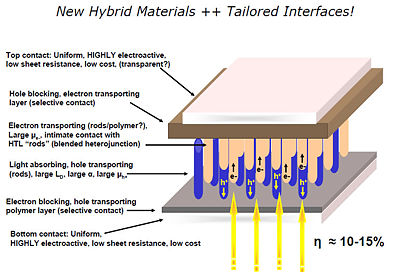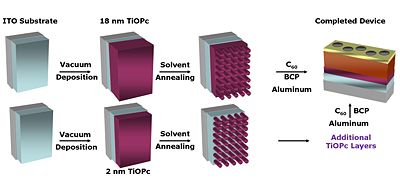Current OPV Research Directions
Revision as of 13:55, 10 June 2009 by 128.95.39.42 (talk)
| Previous Topic | Return to OPV Menu |
These are promising directions in organic photovoltaic research being pursued at the CMDITR
New materials
Discotic Mesophase Materials
Dendritic Polymers
Nanoparticles
Semiconductor nanoparticles built from cadmium selenide 2-5nm in diameter take on interesting electron properties. The particle is capped with ligands to make them processable. The size of the nanoparticle determines the luminescence. The smallest make blue color, the largest makes the red. Used in a solar cell they absorb in the same color ranges.
Tailored interfaces
Fabrication Processes
| Previous Topic | Return to OPV Menu |
